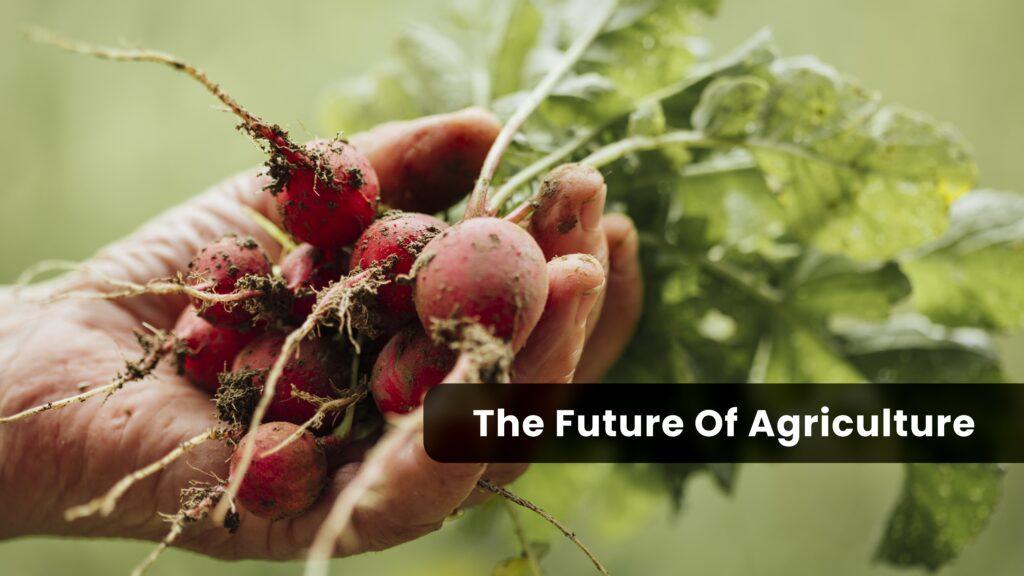The popularity of organic farming is rising as customers look for more ethical and environmentally friendly food options. This type of farming focuses on organic processes rather than artificial fertilizers and pesticides. We’ll look at the advantages of organic farming and how it’s influencing the future of agriculture in this article.
What is Organic Farming?
In addition to avoiding synthetic pesticides, organic farming aims to create a thriving ecology. Organic farmers increase biodiversity and soil health by employing natural methods to control pests and illnesses. This results in healthier animals and plants, which ultimately results in healthier food for consumers. By encouraging small-scale farming and minimizing the negative effects of agriculture on the environment, organic farming also benefits nearby communities. The advantages to the environment, animal welfare, and human health make organic farming a worthy investment even though it may need more work and care than conventional farming.
Benefits of Organic Farming
Health Benefits of Organic Food
Food that is produced through organic farming is healthier, which is one of its key advantages. Synthetic pesticides and fertilizers, which can leave dangerous residues on the food we eat, are not used to raise organic crops. Additionally, organic farming methods place a higher priority on soil health, which results in crops that are more nutrient-dense. According to studies, produce grown organically has higher concentrations of vitamins, minerals, and antioxidants than produce grown conventionally. Omega-3 fatty acids and other healthy elements are frequently more abundant in organic meat and dairy products.
Environmental Benefits of Organic Farming
There are various environmental advantages to organic farming. The decrease in chemical pollution is one of the most important. Synthetic pesticides and fertilizers, which can damage soil, water, and air, are largely used in conventional farming. Contrarily, organic farming use natural approaches to preserve soil fertility and control pests, such as crop rotation, composting, and biological pest control. This preserves biodiversity and lessens the amount of dangerous chemicals released into the environment. Additionally, cover crops and little tillage are frequently used in organic farming techniques, which can aid to lower soil erosion and enhance soil health.
Economic Benefits of Organic Farming
Organic farming has advantages for the environment, human health, and the economy. Organic farms frequently rely on regional marketplaces and consumer direct sales, which can sustain regional economies and small companies. In the long run, organic farming can save money since it eliminates the need for pricey synthetic fertilizers and pesticides. Government grants and subsidies may also be available to organic farms, strengthening their ability to remain profitable.
Challenges Faced by Organic Farmers
When switching from traditional farming practices, organic farmers have a number of difficulties. These include the challenges involved in acquiring organic certification, the greater labor expenses related to organic farming, and the requirement for additional land to handle intricate crop rotations. Additionally, the necessity for natural pesticides and fertilizers may result in higher input costs for organic farms.
Getting certified as an organic farmer is one of the main obstacles they must overcome. Farmers must follow rigorous criteria and submit to frequent inspections as part of this process, which may be time-consuming and expensive. Additionally, organic farming frequently calls for labor-intensive techniques like crop rotation and manual weeding, which can raise labor expenses. To accommodate complicated crop cycles, organic farmers might also need to buy more land, which can be expensive. Last but not least, the necessity for organic pest and fertilizer control methods, which can be more expensive than conventional alternatives, may result in increased input prices for organic farms. Despite these difficulties, a large number of farmers are dedicated to organic farming as a means of fostering sustainability and safeguarding the environment.
Organic producers could experience difficulty marketing their goods in addition to the challenges of acquiring organic certification and rising labor expenses. Although the cost of organic fruit is frequently greater, it can be challenging to find customers ready to pay the higher price. The use of synthetic fertilizers and pesticides by conventional farms, which can result in higher yields and lower prices, may also pose a threat to organic farmers. Finally, since organic farmers might not have access to the same chemical remedies that conventional farmers do to combat pests and illnesses, weather and climate conditions can present difficulties for them. Despite these obstacles, many organic farmers are prospering by concentrating on specialized markets and developing connections with customers who value organic, sustainable farming.
Prospects and Potential for Organic Farming for Future Generations
The growth of organic farming bodes well for the future of agriculture. The demand for organic produce is anticipated to increase as customers become more conscious of how their dietary decisions affect the environment and their health. Increased biodiversity, cleaner water, and better soil health are further advantages of organic farming. The future of agriculture will be greatly influenced by organic farming, which has the ability to produce sustainable and moral food production.
The way we generate food could be revolutionized by organic farming. Organic farmers can use less dangerous chemicals and pesticides by adopting natural methods to control pests and diseases. This has positive effects on the ecosystem as well as the soil’s health, which results in increased crop yields and higher-quality produce. Furthermore, organic farming encourages the development of indigenous flora and provides habitat for wildlife, thereby promoting biodiversity. Organic farming is a financially viable choice as more consumers desire organic produce and farmers are able to get greater rates for their harvests. Organic farming is positioned to play a significant role in the future of agriculture due to its many advantages.
Conclusion
Organic farmers reduce the amount of hazardous chemicals released into the soil and water by forgoing the use of synthetic pesticides and fertilizers. This might help maintain the soil’s quality, prevent water contamination, and promote biodiversity. Organic farming strives to decrease agriculture’s negative environmental effects in addition to encouraging sustainable agriculture. By ingesting fresh food devoid of synthetics and chemicals, organic farming not only benefits the environment but also improves health.
Additionally, organic farming is a fantastic approach to guarantee that the environment and availability of fresh, healthy food will be preserved for future generations.
With the same aim to promote biodiversity and engage in a sustainable method of farming, we at Mogg’s Estates operate all our farming operations organically, to ensure all of our efforts are directed toward enhancing the wellbeing of both people and the soil.
Contact us at +91-9513655556 for more information about how we function.




